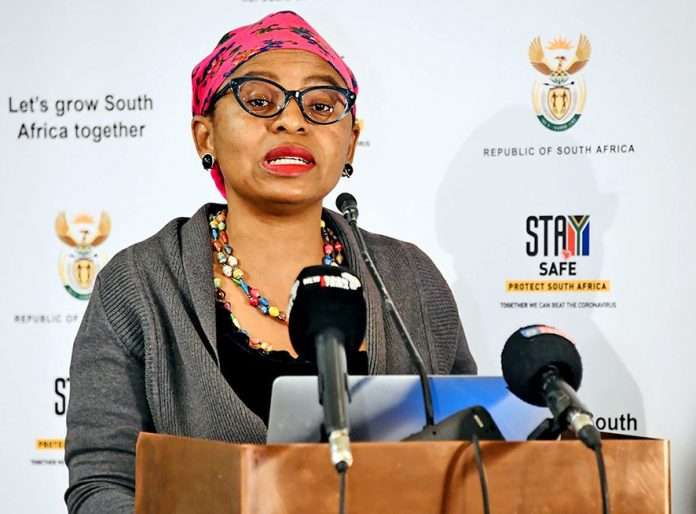Minister of Communications and Digital Technologies Khumbudzo Ntshavheni says her department is eagerly awaiting the Constitutional Court’s decision on the analogue switch-off (ASO) date so that it can conclude broadcast digital migration.
This after etv appealed at the ConCourt the ruling of a high court in Pretoria that favoured the measures taken by the Ntshavheni towards the conclusion of the delayed broadcast digital migration.
This will allow the department to release spectrum in Gauteng, Western Cape, KwaZulu-Natal and Eastern Cape.
The minister said that unfortunately, until the analogue switch-off, the country’s economic hubs of Gauteng and KwaZulu-Natal will remain with poor network connectivity with a negative impact to the economy.
She was speaking at a media briefing on the progress of the broadcasting digital migration towards South Africa’s analogue switch-off in Pretoria on Friday.
“We have concluded the analogue switch-off and migration for the SABC analogue switch-off in the five provinces of the Free-State, Northern Cape, North West, Mpumalanga and Limpopo. Therefore, Icasa [Independent Communications Authority of South Africa] will be able to release the high-demand spectrum in these provinces,” she said.
The release of the spectrum will enable telecommunication operators to decongest the networks through the deployment of 4G and 5G networks across the country.
Ntshavheni noted that South Africans, irrespective of where they live, in recent days have experienced poor connectivity including on voice calls due to increased loads on the networks.
Progress with the set-top boxes installations
The minister announced the completion of set-top boxes (STB) installations in the Free State, Northern Cape, Limpopo, Mpumalanga and Gauteng, noting that her department is currently completing the mop-up for Western Cape and North West to verify completion status, because Sapo does not have additional addresses due for installations.
“The floods have severely impacted the STB installation rate in KwaZulu-Natal and Eastern Cape. This is due to damages of beneficiary houses and road infrastructure that has led to inaccessibility of some communities. As a result, as of the 21st of June 2022, a total of 109 270 beneficiary households remains unconnected in the two provinces,” she said.
Ntshavheni added that the department continues to coordinate with the Department of Human Settlements and other infrastructure departments to ensure installation to beneficiary households are resumed as and when the relevant infrastructure is restored.
“We have also commenced with installations for the end of September targets across the five provinces that have completed 30 June 2022 installations, with Western Cape and North West yet to commence.
“To date, we have installed STBs to 44 424 households that are due for installations by 30 September 2022.”
Increasing capacity in installing STBs
Ntshavheni noted that her department is continuing to increase its capacity to install more STBs per day to ensure the quickest rate of installations for post-ASO registrations in the event of a possible surge of applications after the analogue switch-off.
However, since the beginning of April, the minister said the project continued to experience a decline in the number of new registrations.
“We wish to remind those households earning below a total of R3 500 per month that applications for registration are still open,” she said. – SAnews.gov.za
Follow @SundayWorldZA on Twitter and @sundayworldza on Instagram, or like our Facebook Page, Sunday World, by clicking here for the latest breaking news in South Africa. To Subscribe to Sunday World, click here.
Sunday World



